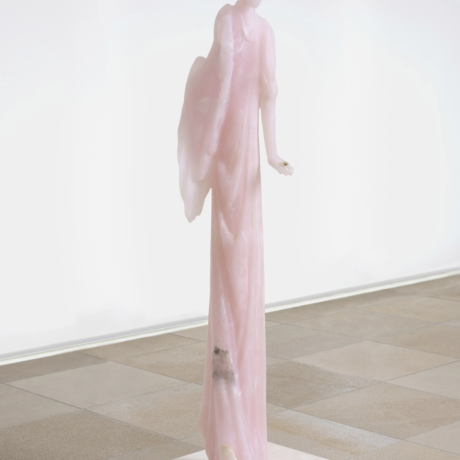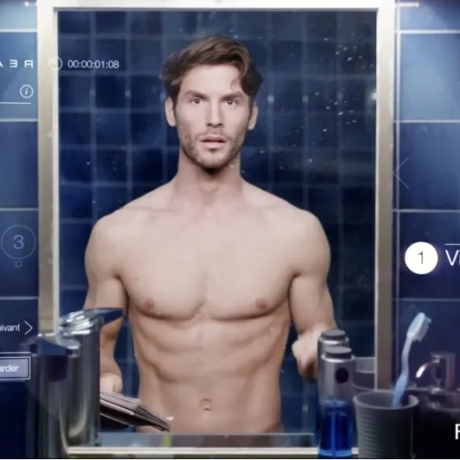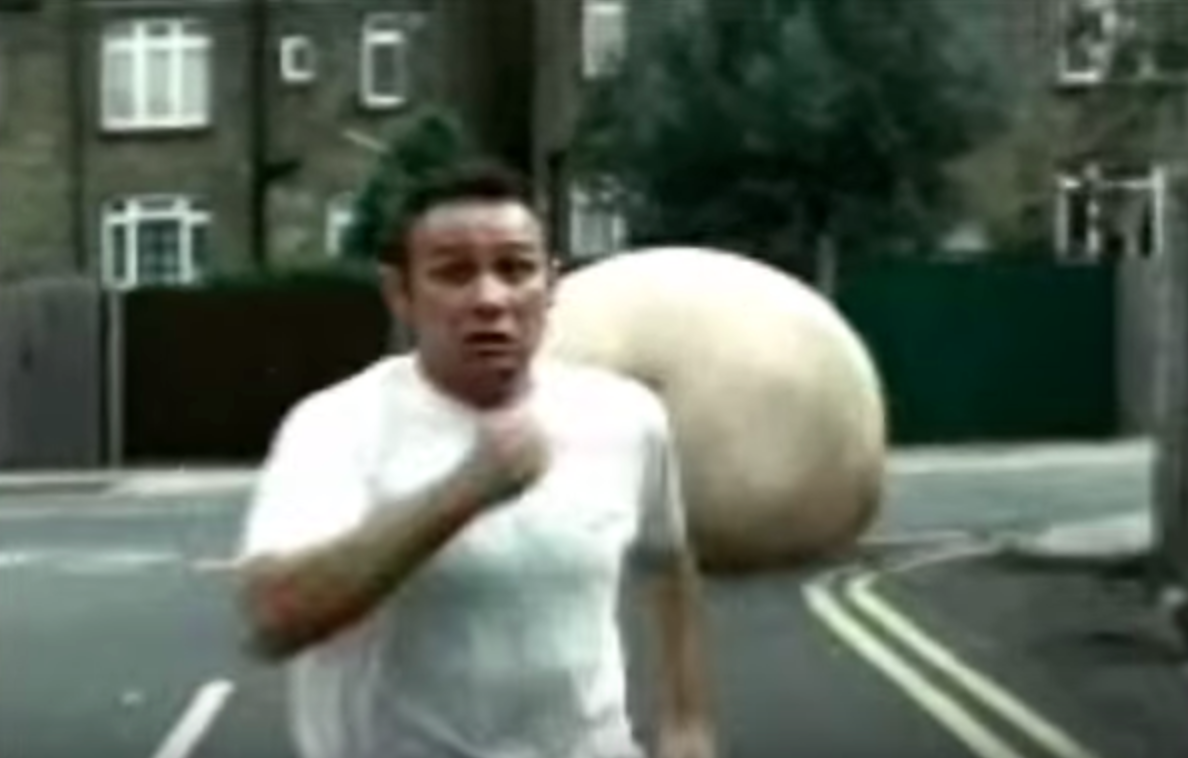
The year 2000 was a strange one, heralded by varying degrees of panic around the Y2K bug. It was a Juicy Couture tracksuit-trending, Nokia Snake-obsessed, exciting time too. Not just a new year, decade or even century, the world was entering a whole new, shiny millennium. We’d surpassed Prince’s iconic party song 1999, and were a year shy of Kubrick’s Space Odyssey. This was the future. While the threat of the Millennium Bug struck fear into many, arguably the most terrifying things to emerge from the year 2000 were its adverts. Notably the most terrifying of all, the ad that still haunts many a Brit’s dreams… Take a deep breath, have a sit down, brace yourself: THE BELLY’S GONNA GET YA!!!!!!
“While the threat of the Millennium Bug struck fear into many, arguably the most terrifying things to emerge from the year 2000 were its adverts”
If I’m being totally honest, before this became an inexplicable earworm for me a month or so ago, I had no recollection of what it was actually advertising. But I could remember that advert in painful, visceral detail: the maniacal metal soundtrack; the terrified man pelting it down the road; the enormous, hairy belly. And that taunting refrain: THE BELLY’S GONNA GET YA!
The ad was, in fact, part of a hugely successful £4million campaign for Reebok, created by ad agency Lowe Lintas. The idea was, Reebok suggested at the time, to eschew the aspirational athleticism that rival brands such as Nike and Adidas used to peddle their wares. Instead, they looked to the everyman, and of course in Britain, the everyman probably has a sizeable beer gut.
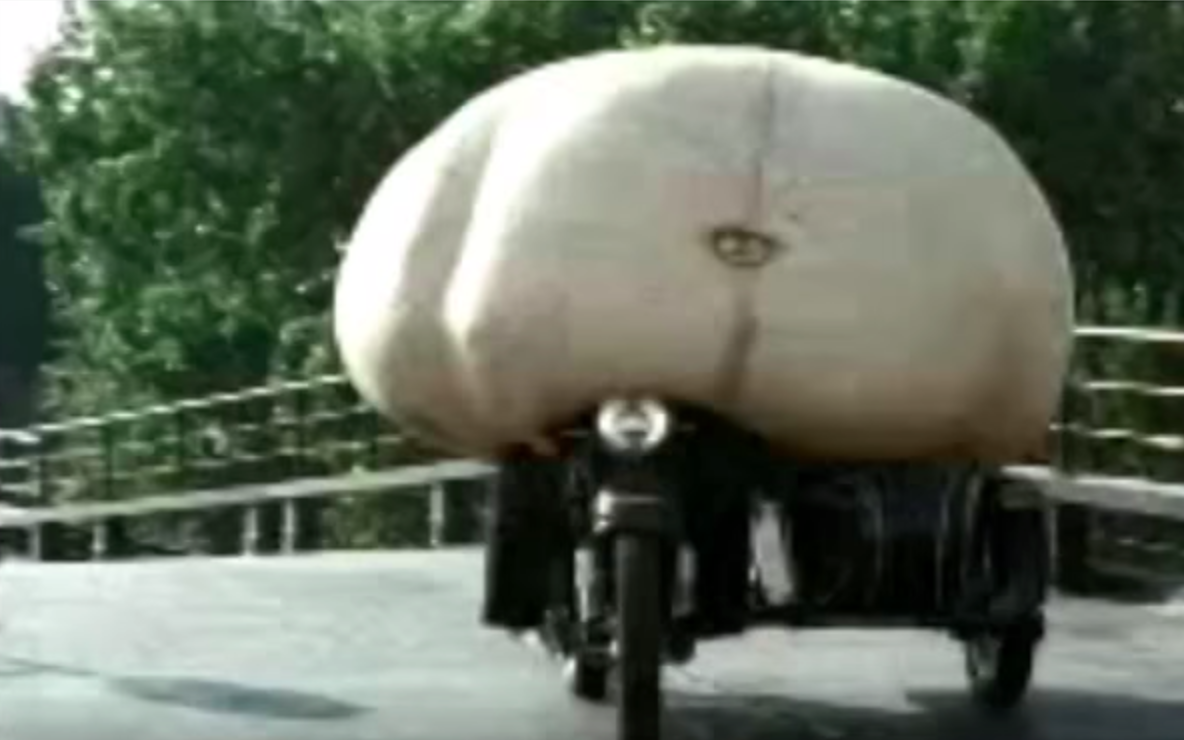
In just forty nightmarish seconds the ad, for those unfamiliar with it, follows a cinematic, body horror-esque chase. We see a bloke pelting it down the street, glancing behind him with fear emblazoned across his face, before it is revealed that he’s being chased by a massive belly. He tries to escape into a shopping centre, springing up the escalators in desperate leaps. Clever ol’ belly takes the lift, the canny piece of flesh that he is, and the two characters end up in a standoff, belly now somehow astride a motorbike, on a carpark rooftop.
The final denouement goes for further weirdo-action-movie stunts. The protagonist seemingly chooses to plunge to his death to save himself from whatever this massive belly might do to him, and he careens off the edge. Or so we think: he saves himself at the last second, while the belly plunges to its untimely end. The message? Unclear. The slogan? As the sole of the man’s shoe reveals, “Lose the beer belly.”
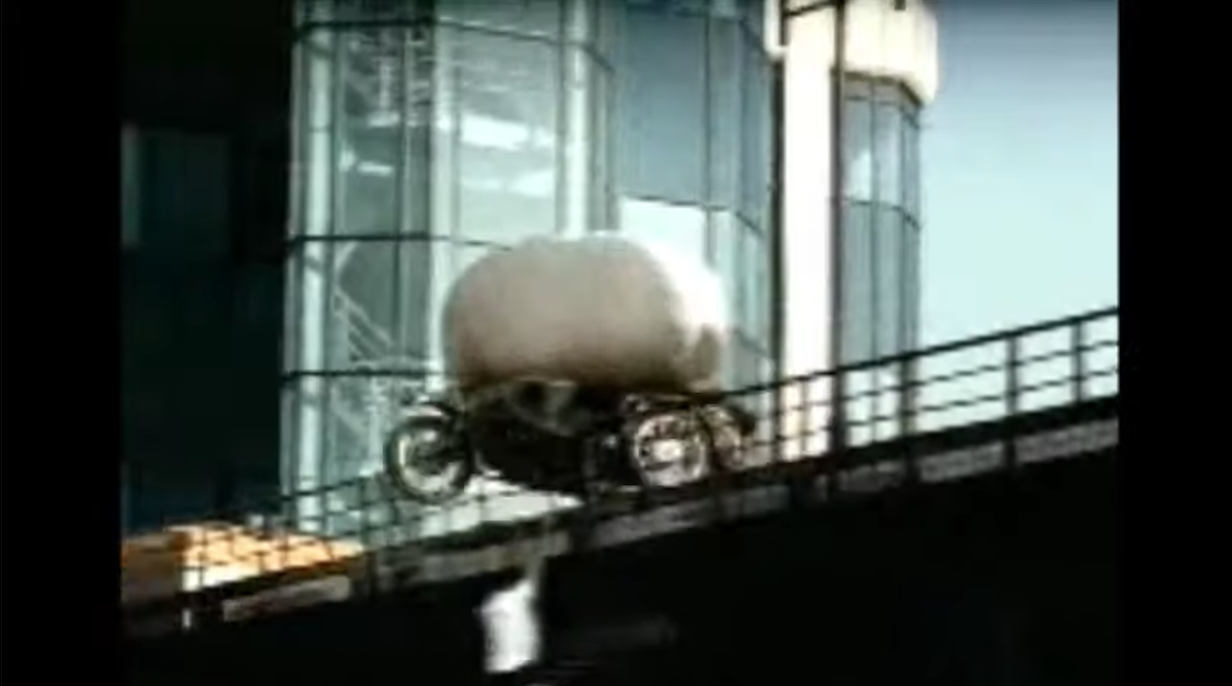
The eight-foot-wide, five-foot-tall belly costume was created by effects and model agency Asylum; made from hollowed-out foam that was sprayed with latex, it was then painted and decorated with artificial plastic hairs and moles. The belly itself was manoeuvred by an actor within it, running and jumping to enhance its monstrous wobbles. But as The Guardian reported at the time, “
A stunt man had to be used for the end of the ad, when the belly climbs onto a motorbike and drives after his victim. The driver could not see out and had to rely on a monitor inside the costume to navigate his way onto and across a roof.”
The ad was directed by
Traktor, through the agency Partizan. Nick Seresin at CG and VFX production agency MPC was responsible for the post-production. The scene when the belly falls to his demise in the water was shot without an actor (for the best, I reckon). The actor’s legs were removed in post, and the belly was made to appear as though it spread across the ground by digitally “stretching” it downwards and painting in a long shadow.
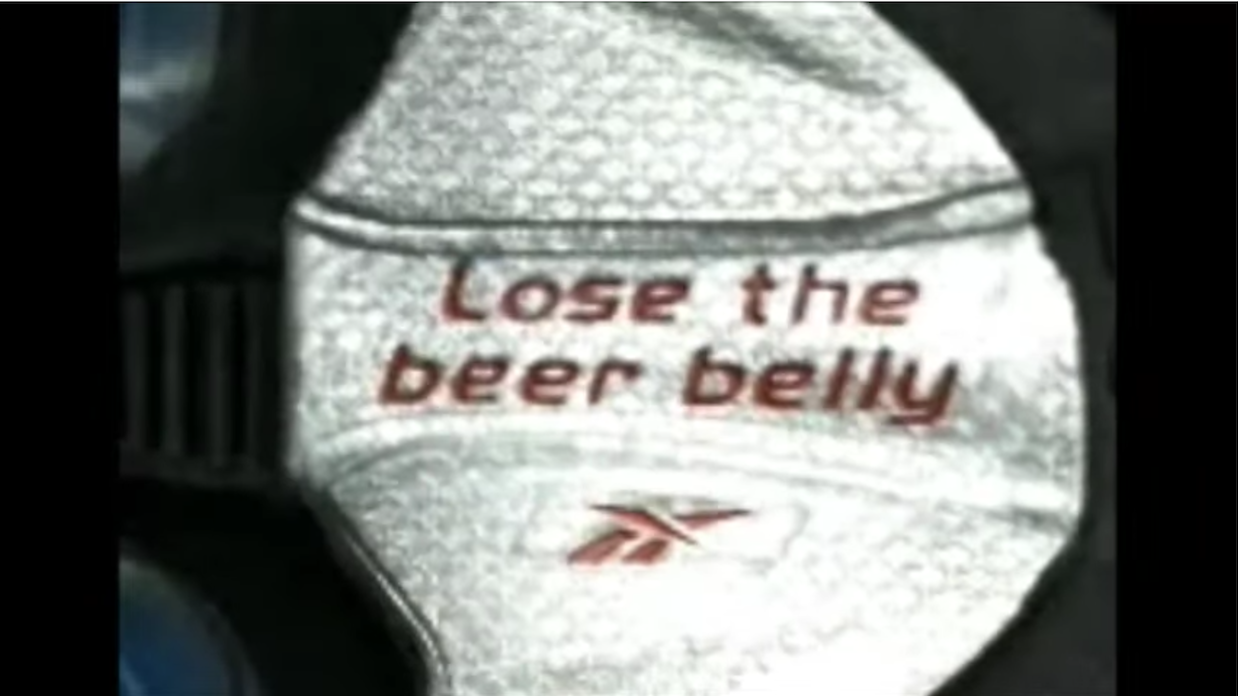
“There is something about it that’s daftly, self-deprecatingly British; it’s so dry humoured and knowingly ugly”
When the ad launched, then-deputy managing director at Lowe Lintas Jeremy Bowles said the spot was all about Reebok “telling it like it is. People don’t just do sport to win at all cost. Many just want to stay in shape, feel good and enjoy it.” He added that people would likely relate to the ads, since consumers would “appreciate their honest intent”.
What made it such a hit is that brilliant slogan destined to be repeated and yelled around every single schoolyard, across sticky carpeted pubs, and roaming through nightmares. I genuinely find the phrase wafting through my clearly tumbleweed-strewn mind at least once a day. The other reason it was so well-loved? There is something about it that’s daftly, self-deprecatingly British; it’s so dry humoured and knowingly ugly, and so very turn of this century. Don’t run to be fit, Reebok seems to implore: run to make way for a few more pints.

